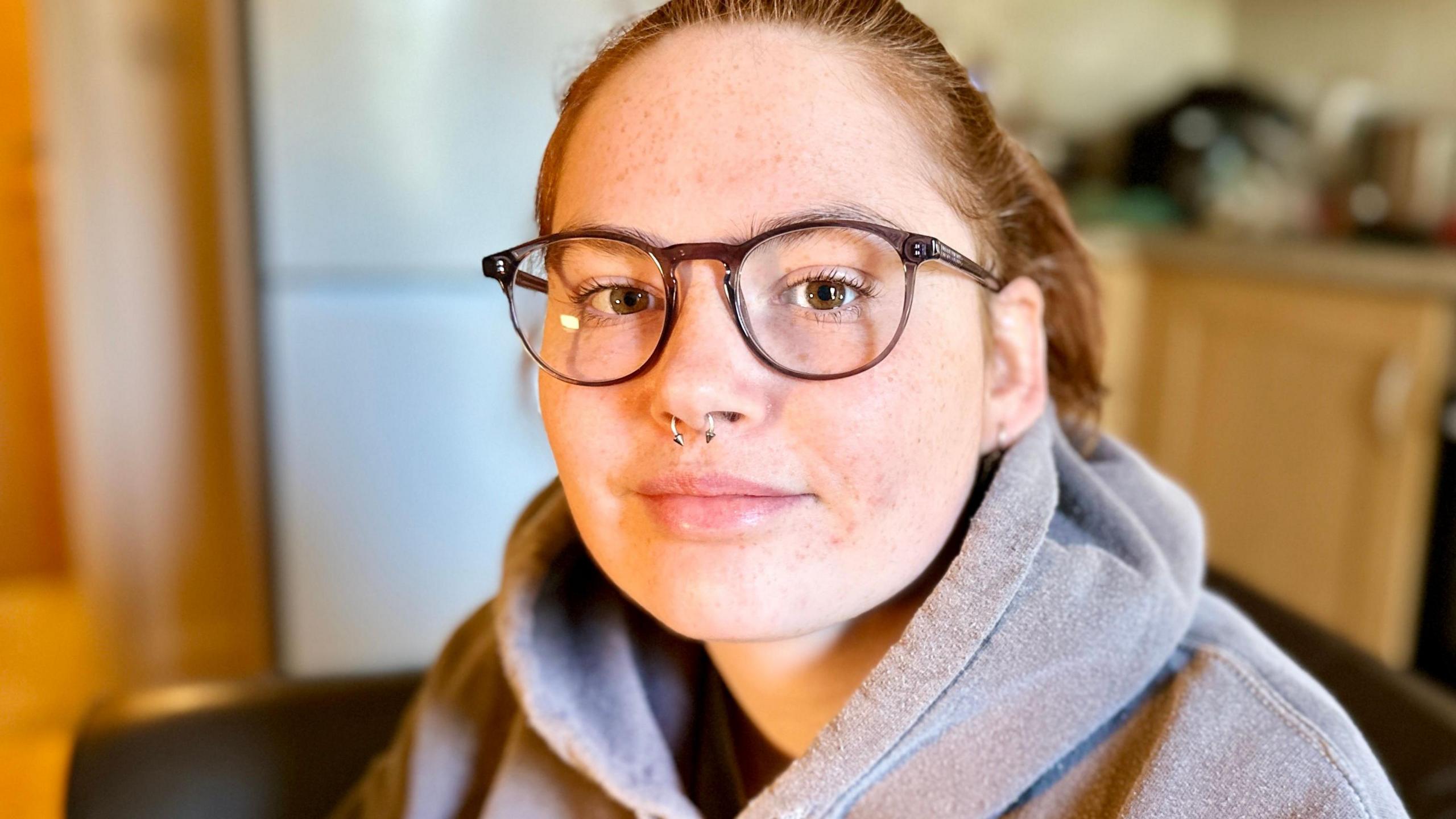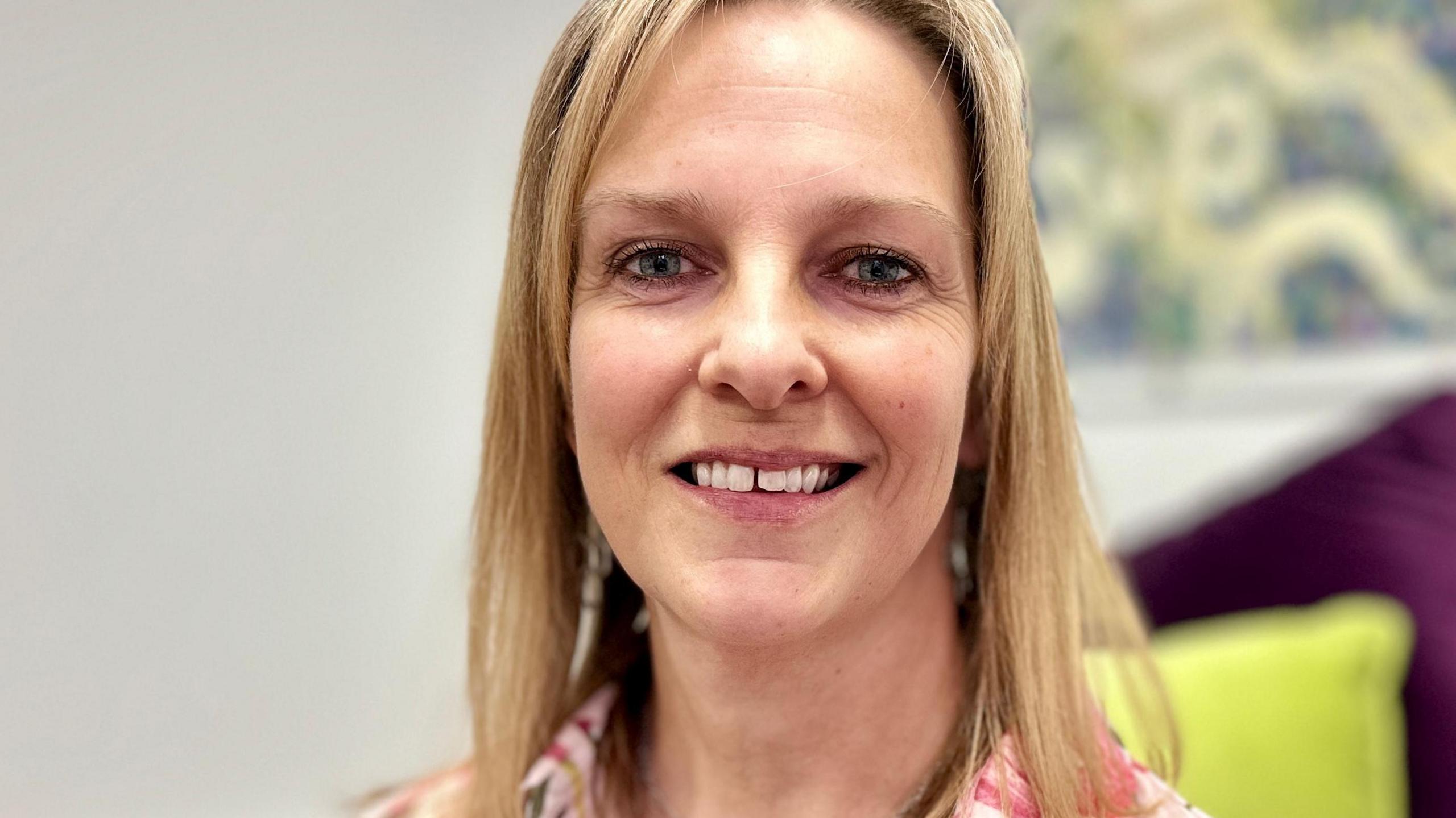Care leavers facing 'financial cliff edge' at 18

In Basingstoke, Lee said she was "daunted" by the prospect of life after care
- Published
There have been calls to end the "deep unfairness" of children leaving the care system receiving less universal credit than adults over the age of 25.
Care leavers and charities believe a monthly increase of more than £80 would provide young people with stability and help them focus on education and work.
Local housing allowances are supposed to cover care leavers' rents, but many worry the £317-a-month universal credit entitlement is not enough to cover bills, food and transport costs.
The Department for Work and Pensions said care leavers already received "targeted help" and that work is the "best route out of poverty".
In Basingstoke, 18-year-old Lee is at college and lives with a "host family" in supported lodgings organised by youth homelessness charity Step by Step.
But when her contract ends, she will have to live independently.
"I'll have to move into my own flat, which sounds exciting, but it's very daunting and I'm really worried about it, simply because of the money," she said.
"I feel like I'm really young and there's lots of people older than me that still live with their parents and so I feel like life is sort of just forcing me out into the big wide world before I'm ready."
Lee already works part-time as a waitress, but fears her wages will not be enough to supplement her universal credit payments.

Stevie believes care leavers should get the same amount of universal credit as adults because "18 isn't cheaper"
Stevie, from Winchester, said it was a "really big struggle" to survive on universal credit when she was 18.
"Money was always at the forefront of my mind," she said. "Especially transport to and from college.
"I had to get a train and a bus, because I lived far away. It didn't matter that I was 18 or 25, that's still going to be the same amount of money."
She remembers being "pence short" sometimes at food checkouts and having to get off the bus earlier to walk the rest of the way.
Stevie also said she could not afford to travel to see her friends, which led to friendships breaking down.
As universal credit is paid monthly, she found herself getting into debt during five-week months, after borrowing money for food.
"I want the government to change the amount of universal credit under 25's get - specifically care leavers," she said.
"Because most of them don't have anyone to fall back on, no mum or dad, and it's cruel."
'Deep unfairness'
Step by Step, the UK's largest supported lodgings provider, helps hundreds of young people each year as they leave care.
The charity said while all under 25's get a lower rate of universal credit, the policy assumes a reliance on family for financial support.
It said this creates a "deep unfairness" for care leavers who face the same rent, bills, and food costs as their peers.
The group is backing a private members' bill, external to raise universal credit for all care leavers to the same amount paid to single adults aged 25 and over.
Step by Step chief executive Debbie Moreton said: "It's absolutely crucial that this private members' bill goes through because it's critical to young people within services like ours.
"It is not any cheaper when they're 18 to being 25. They have nobody to support them, mum and dad aren't there and it's really, really difficult."

Dr Becky Ward said some young people said leaving care felt like "stepping off a cliff edge"
Step by Step has partnered with the University of Southampton for a research project collecting the experiences of young people leaving care.
Lead researcher Dr Becky Ward said raising universal credit was a "simple and achievable" change that could "make a lasting difference".
She added the proposed increase of more than £80 a month would "provide stability, reduce crisis interventions, and help young people focus on education, work, and building their futures."
The DWP said its youth policies ensured all young people had the opportunity to earn or learn.
A spokesperson said: "Work is the best route out of poverty – with the under-25 rate maintaining the incentive to move into work and get on at work – while care leavers receive targeted help through our Jobcentres."
They added that care leavers also receive "higher housing allowances" up to the age of 25.
You can follow BBC Hampshire & Isle of Wight on Facebook, external, X (Twitter), external, or Instagram, external.